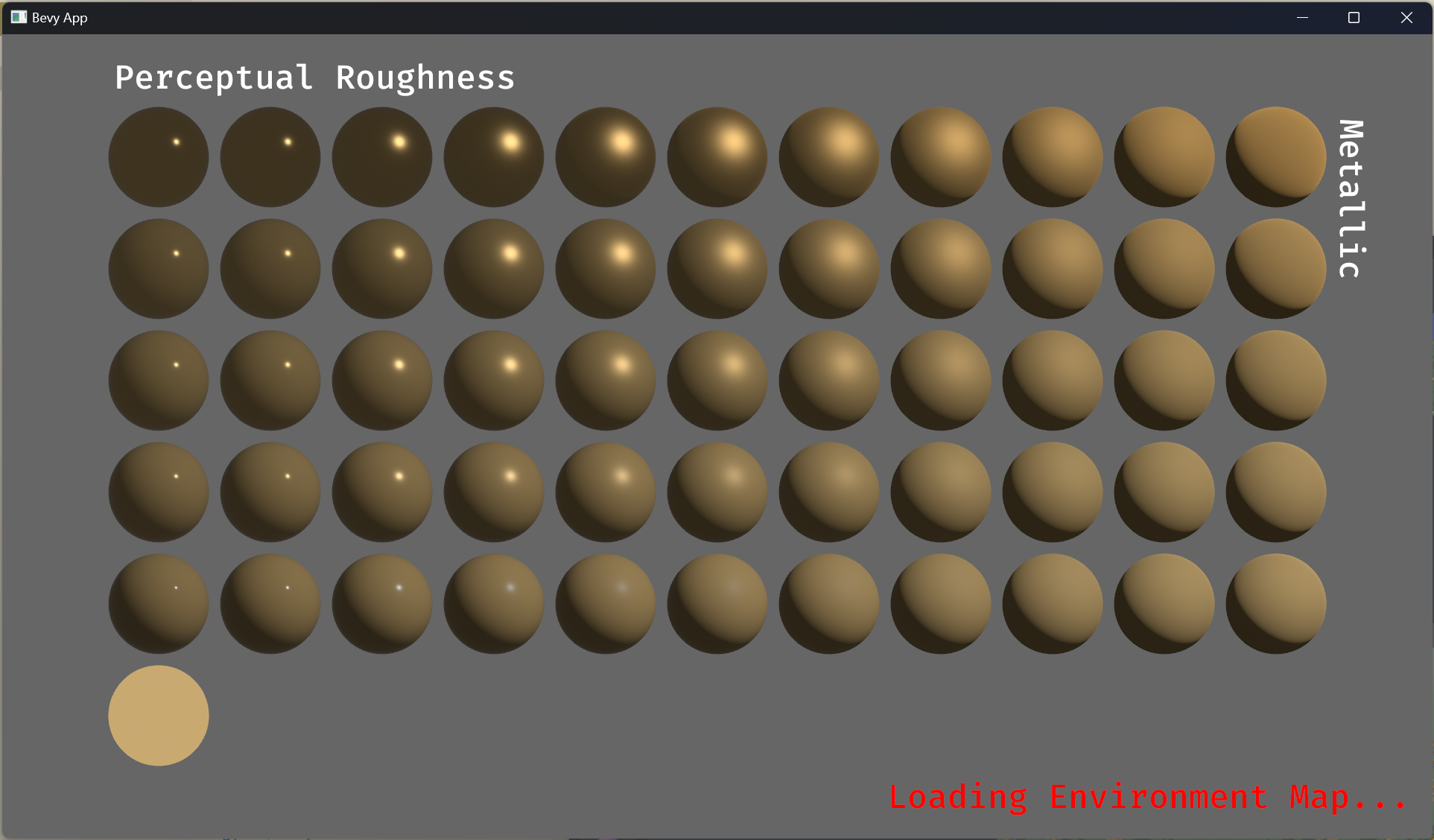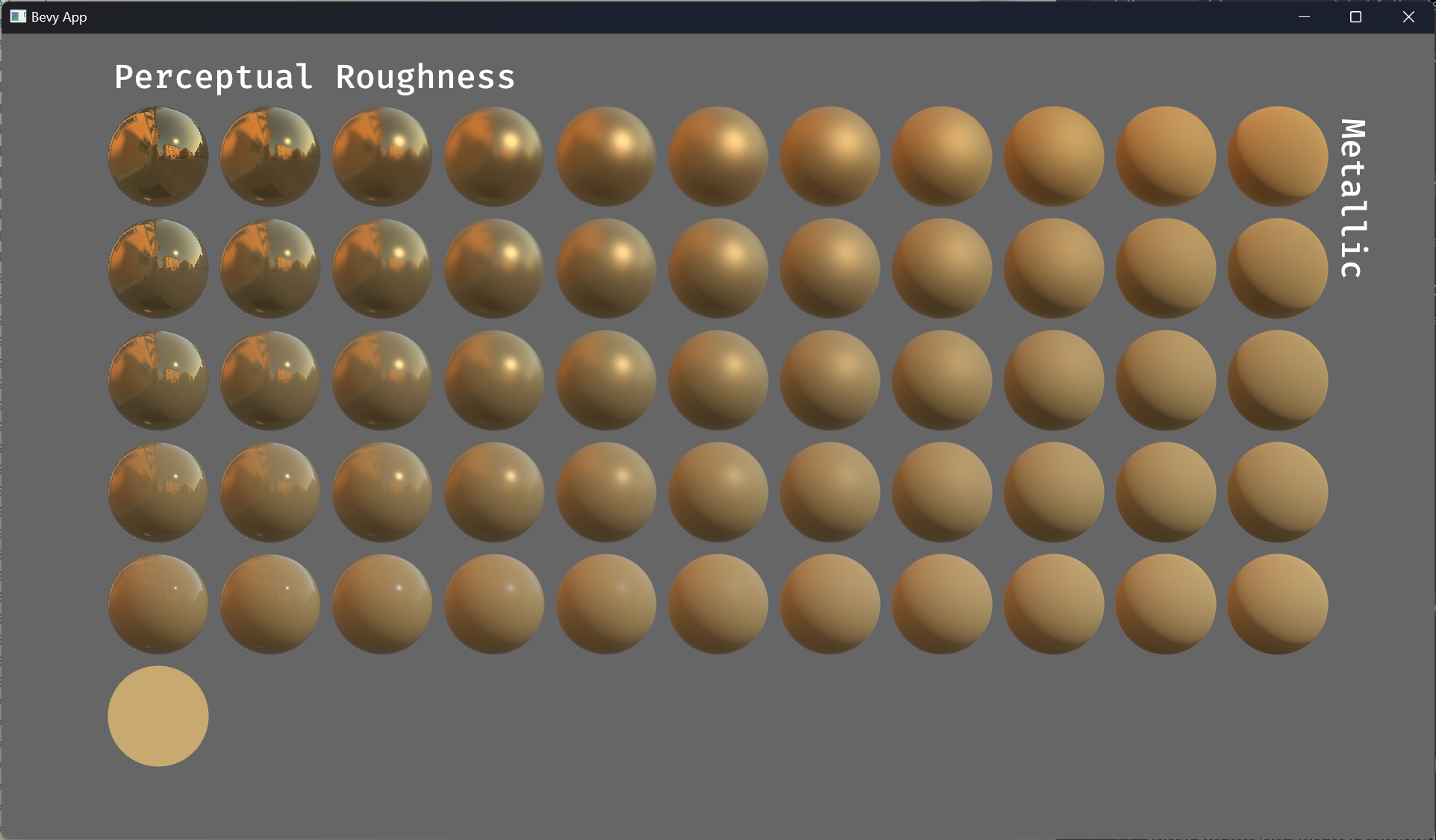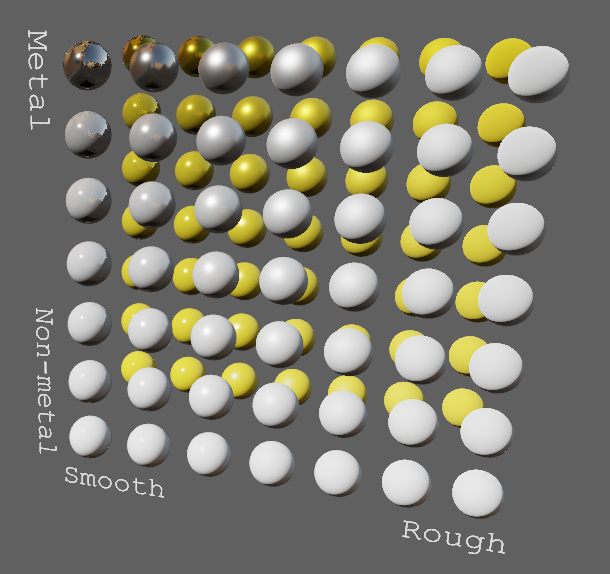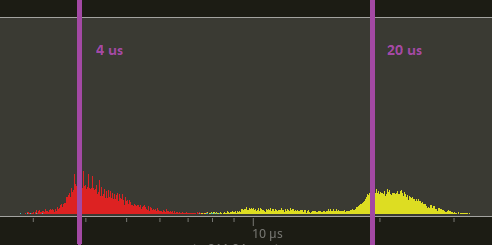# Objective
- Required features were added to some examples in #7051 even though those features aren't the main focus of the examples
- Don't require features on examples that are useful without them
## Solution
- Remove required features on examples `load_gltf` and `scene_viewer`, but log a warning when they are not enabled
# Objective
Related to #7530.
`EventReader` iterators currently use the default impl for `.count()`, which unnecessarily loops over all unread events.
# Solution
Add specialized impls that mark the `EventReader` as consumed and return the number of unread events.
# Objective
There was issue #191 requesting subdivisions on the shape::Plane.
I also could have used this recently. I then write the solution.
Fixes #191
## Solution
I changed the shape::Plane to include subdivisions field and the code to create the subdivisions. I don't know how people are counting subdivisions so as I put in the doc comments 0 subdivisions results in the original geometry of the Plane.
Greater then 0 results in the number of lines dividing the plane.
I didn't know if it would be better to create a new struct that implemented this feature, say SubdivisionPlane or change Plane. I decided on changing Plane as that was what the original issue was.
It would be trivial to alter this to use another struct instead of altering Plane.
The issues of migration, although small, would be eliminated if a new struct was implemented.
## Changelog
### Added
Added subdivisions field to shape::Plane
## Migration Guide
All the examples needed to be updated to initalize the subdivisions field.
Also there were two tests in tests/window that need to be updated.
A user would have to update all their uses of shape::Plane to initalize the subdivisions field.
# Objective
- While working on scope recently, I ran into a missing invariant for the transmutes in scope. The references passed into Scope are active for the rest of the scope function, but rust doesn't know this so it allows using the owned `spawned` and `scope` after `f` returns.
## Solution
- Update the safety comment
- Shadow the owned values so they can't be used.
# Objective
In our project we parse `GltfNode` from `*.gltf` file, and we need extra properties information from Blender. Right now there is no way to get this properties from GltfNode (only through query when you spawn scene), so objective of this PR is to add extra properties to `GltfNode`
## Solution
Store extra properties inside `Gltf` structs
---
## Changelog
- Add pub field `extras` to `GltfNode`/`GltfMesh`/`GltfPrimitive` which store extras
- Add pub field `material_extras` to `GltfPrimitive` which store material extras
# Objective
`Size::width` sets the `height` field to `Val::DEFAULT` which is `Val::Undefined`, but the default for `Size` `height` is `Val::Auto`.
`Size::height` has the same problem, but with the `width` field.
The UI examples specify numeric values in many places where they could either be elided or replaced by composition of the Flex enum properties.
related: https://github.com/bevyengine/bevy/pull/7468
fixes: https://github.com/bevyengine/bevy/issues/6498
## Solution
Change `Size::width` so it sets `height` to `Val::AUTO` and change `Size::height` so it sets `width` to `Val::AUTO`.
Added some tests so this doesn't happen again.
## Changelog
Changed `Size::width` so it sets the `height` to `Val::AUTO`.
Changed `Size::height` so it sets the `width` to `Val::AUTO`.
Added tests to `geometry.rs` for `Size` and `UiRect` to ensure correct behaviour.
Simplified the UI examples. Replaced numeric values with the Flex property enums or elided them where possible, and removed the remaining use of auto margins.
## Migration Guide
The `Size::width` constructor function now sets the `height` to `Val::Auto` instead of `Val::Undefined`.
The `Size::height` constructor function now sets the `width` to `Val::Auto` instead of `Val::Undefined`.
# Objective
Make the name less verbose without sacrificing clarity.
---
## Migration Guide
*Note for maintainers:* This PR has no breaking changes relative to bevy 0.9. Instead of this PR having its own migration guide, we should just edit the changelog for #6404.
The type `UnsafeWorldCellEntityRef` has been renamed to `UnsafeEntityCell`.
# Objective
Continuation of #7560.
`MutUntyped::last_changed` and `set_last_changed` do not behave as described in their docs.
## Solution
Fix them using the same approach that was used for `Mut<>` in #7560.
fixes#6799
# Objective
We should be able to reuse the `Globals` or `View` shader struct definitions from anywhere (including third party plugins) without needing to worry about defining unrelated shader defs.
Also we'd like to refactor these structs to not be repeatedly defined.
## Solution
Refactor both `Globals` and `View` into separate importable shaders.
Use the imports throughout.
Co-authored-by: Torstein Grindvik <52322338+torsteingrindvik@users.noreply.github.com>
# Objective
- This makes code a little more readable now.
## Solution
- Use `position` provided by `Iter` instead of `enumerating` indices and `map`ping to the index.
This was missed in #7205.
Should be fixed now. 😄
## Migration Guide
- `SpecializedComputePipelines::specialize` now takes a `&PipelineCache` instead of a `&mut PipelineCache`
# Objective
The current `AlignSelf` doc comments:
```rust
pub enum AlignSelf {
/// Use the value of [`AlignItems`]
Auto,
/// If the parent has [`AlignItems::Center`] only this item will be at the start
FlexStart,
/// If the parent has [`AlignItems::Center`] only this item will be at the end
FlexEnd,
/// If the parent has [`AlignItems::FlexStart`] only this item will be at the center
Center,
/// If the parent has [`AlignItems::Center`] only this item will be at the baseline
Baseline,
/// If the parent has [`AlignItems::Center`] only this item will stretch along the whole cross axis
Stretch,
}
```
Actual behaviour of `AlignSelf` in Bevy main:
<img width="642" alt="align_self" src="https://user-images.githubusercontent.com/27962798/217795178-7a82638f-118d-4474-b7f9-ca27f204731d.PNG">
The white label at the top of each column is the parent node's `AlignItems` setting.
`AlignSelf` is always applied, not (as the documentation states) only when the parent has `AlignItems::Center` or `AlignItems::FlexStart` set.
```rust
use bevy::prelude::*;
fn main() {
App::new()
.add_plugins(DefaultPlugins)
.add_startup_system(setup)
.run();
}
fn setup(mut commands: Commands, asset_server: Res<AssetServer>) {
commands.spawn(Camera2dBundle::default());
commands.spawn(NodeBundle {
style: Style {
justify_content: JustifyContent::SpaceAround,
align_items: AlignItems::Center,
size: Size::new(Val::Percent(100.), Val::Percent(100.)),
..Default::default()
},
background_color: BackgroundColor(Color::NAVY),
..Default::default()
}).with_children(|builder| {
for align_items in [
AlignItems::Baseline,
AlignItems::FlexStart,
AlignItems::Center,
AlignItems::FlexEnd,
AlignItems::Stretch,
] {
builder.spawn(NodeBundle {
style: Style {
align_items,
flex_direction: FlexDirection::Column,
justify_content: JustifyContent::SpaceBetween,
size: Size::new(Val::Px(150.), Val::Px(500.)),
..Default::default()
},
background_color: BackgroundColor(Color::DARK_GRAY),
..Default::default()
}).with_children(|builder| {
builder.spawn((
TextBundle {
text: Text::from_section(
format!("AlignItems::{align_items:?}"),
TextStyle {
font: asset_server.load("fonts/FiraSans-Regular.ttf"),
font_size: 16.0,
color: Color::BLACK,
},
),
style: Style {
align_self: AlignSelf::Stretch,
..Default::default()
},
..Default::default()
},
BackgroundColor(Color::WHITE),
));
for align_self in [
AlignSelf::Auto,
AlignSelf::FlexStart,
AlignSelf::Center,
AlignSelf::FlexEnd,
AlignSelf::Baseline,
AlignSelf::Stretch,
] {
builder.spawn((
TextBundle {
text: Text::from_section(
format!("AlignSelf::{align_self:?}"),
TextStyle {
font: asset_server.load("fonts/FiraSans-Regular.ttf"),
font_size: 16.0,
color: Color::WHITE,
},
),
style: Style {
align_self,
..Default::default()
},
..Default::default()
},
BackgroundColor(Color::BLACK),
));
}
});
}
});
}
```
# Objective
Make `last_changed` behave as described in its docs.
## Solution
- Return `changed` instead of `last_change_tick`. `last_change_tick` is the system's previous tick and is just used for comparison.
- Update the docs of the similarly named `set_last_changed` (which does correctly interact with `last_change_tick`) to clarify that the two functions touch different data. (I advocate for renaming one or the other if anyone has any good suggestions).
It also might make sense to return a cloned `Tick` instead of `u32`.
---
## Changelog
- Fixed `DetectChanges::last_changed` returning the wrong value.
- Fixed `DetectChangesMut::set_last_changed` not actually updating the `changed` tick.
## Migration Guide
- The incorrect value that was being returned by `DetectChanges::last_changed` was the previous run tick of the system checking for changed values. If you depended on this value, you can get it from the `SystemChangeTick` `SystemParam` instead.
(Before)

(After)


# Objective
- Improve lighting; especially reflections.
- Closes https://github.com/bevyengine/bevy/issues/4581.
## Solution
- Implement environment maps, providing better ambient light.
- Add microfacet multibounce approximation for specular highlights from Filament.
- Occlusion is no longer incorrectly applied to direct lighting. It now only applies to diffuse indirect light. Unsure if it's also supposed to apply to specular indirect light - the glTF specification just says "indirect light". In the case of ambient occlusion, for instance, that's usually only calculated as diffuse though. For now, I'm choosing to apply this just to indirect diffuse light, and not specular.
- Modified the PBR example to use an environment map, and have labels.
- Added `FallbackImageCubemap`.
## Implementation
- IBL technique references can be found in environment_map.wgsl.
- It's more accurate to use a LUT for the scale/bias. Filament has a good reference on generating this LUT. For now, I just used an analytic approximation.
- For now, environment maps must first be prefiltered outside of bevy using a 3rd party tool. See the `EnvironmentMap` documentation.
- Eventually, we should have our own prefiltering code, so that we can have dynamically changing environment maps, as well as let users drop in an HDR image and use asset preprocessing to create the needed textures using only bevy.
---
## Changelog
- Added an `EnvironmentMapLight` camera component that adds additional ambient light to a scene.
- StandardMaterials will now appear brighter and more saturated at high roughness, due to internal material changes. This is more physically correct.
- Fixed StandardMaterial occlusion being incorrectly applied to direct lighting.
- Added `FallbackImageCubemap`.
Co-authored-by: IceSentry <c.giguere42@gmail.com>
Co-authored-by: James Liu <contact@jamessliu.com>
Co-authored-by: Rob Parrett <robparrett@gmail.com>
# Objective
Clarify what the function is actually calculating.
The `Tick::is_older_than` function is actually calculating whether the tick is newer than the system's `last_change_tick`, not older. As far as I can tell, the engine was using it correctly everywhere already.
## Solution
- Rename the function.
---
## Changelog
- `Tick::is_older_than` was renamed to `Tick::is_newer_than`. This is not a functional change, since that was what was always being calculated, despite the wrong name.
## Migration Guide
- Replace usages of `Tick::is_older_than` with `Tick::is_newer_than`.
# Objective
Closes#7202
## Solution
~~Introduce a `not` helper to pipe conditions. Opened mostly for discussion. Maybe create an extension trait with `not` method? Please, advice.~~
Introduce `not(condition)` condition that inverses the result of the passed.
---
## Changelog
### Added
- `not` condition.
# Objective
Fixes#7565
`ecs_guide` example is currently panicking. This seems to just be a problem with the example only caused by the base sets PR.
## Solution
First, changed a few `in_set` to `in_base_set` to fix a few of
```
thread 'main' panicked at 'Systems cannot be added to 'base' system sets using 'in_set'. Use 'in_base_set' instead.', examples/ecs/ecs_guide.rs:301:45
```
And then added an `in_base_set` to fix the resulting (confusing) cycle error
```
2023-02-06T13:54:29.213843Z ERROR bevy_ecs::schedule_v3::schedule: schedule contains at least 1 cycle(s) -- cycle(s) found within:
---- 0: ["ecs_guide::game_over_system", "ecs_guide::score_check_system"]
```
I also changed this `add_system` call so the comment above and below make sense:
```diff
// add_system(system) adds systems to the Update system set by default
// However we can manually specify the set if we want to. The following is equivalent to
// add_system(score_system)
- .add_system(score_system)
+ .add_system(score_system.in_base_set(CoreSet::Update))
// There are other `CoreSets`, such as `Last` which runs at the very end of each run.
```
## Notes
- Does `MySet` even need to be a base set? Seems like yes.
- Is that cycle error when there is no explicit `in_base_set` actually expected?
# Objective
- Terminology used in field names and docs aren't accurate
- `window_origin` doesn't have any effect when `scaling_mode` is `ScalingMode::None`
- `left`, `right`, `bottom`, and `top` are set automatically unless `scaling_mode` is `None`. Fields that only sometimes give feedback are confusing.
- `ScalingMode::WindowSize` has no arguments, which is inconsistent with other `ScalingMode`s. 1 pixel = 1 world unit is also typically way too wide.
- `OrthographicProjection` feels generally less streamlined than its `PerspectiveProjection` counterpart
- Fixes#5818
- Fixes#6190
## Solution
- Improve consistency in `OrthographicProjection`'s public fields (they should either always give feedback or never give feedback).
- Improve consistency in `ScalingMode`'s arguments
- General usability improvements
- Improve accuracy of terminology:
- "Window" should refer to the physical window on the desktop
- "Viewport" should refer to the component in the window that images are drawn on (typically all of it)
- "View frustum" should refer to the volume captured by the projection
---
## Changelog
### Added
- Added argument to `ScalingMode::WindowSize` that specifies the number of pixels that equals one world unit.
- Added documentation for fields and enums
### Changed
- Renamed `window_origin` to `viewport_origin`, which now:
- Affects all `ScalingMode`s
- Takes a fraction of the viewport's width and height instead of an enum
- Removed `WindowOrigin` enum as it's obsolete
- Renamed `ScalingMode::None` to `ScalingMode::Fixed`, which now:
- Takes arguments to specify the projection size
- Replaced `left`, `right`, `bottom`, and `top` fields with a single `area: Rect`
- `scale` is now applied before updating `area`. Reading from it will take `scale` into account.
- Documentation changes to make terminology more accurate and consistent
## Migration Guide
- Change `window_origin` to `viewport_origin`; replace `WindowOrigin::Center` with `Vec2::new(0.5, 0.5)` and `WindowOrigin::BottomLeft` with `Vec2::new(0.0, 0.0)`
- For shadow projections and such, replace `left`, `right`, `bottom`, and `top` with `area: Rect::new(left, bottom, right, top)`
- For camera projections, remove l/r/b/t values from `OrthographicProjection` instantiations, as they no longer have any effect in any `ScalingMode`
- Change `ScalingMode::None` to `ScalingMode::Fixed`
- Replace manual changes of l/r/b/t with:
- Arguments in `ScalingMode::Fixed` to specify size
- `viewport_origin` to specify offset
- Change `ScalingMode::WindowSize` to `ScalingMode::WindowSize(1.0)`
# Objective
Fix#7571
## Solution
* Removed the offending line.
***
## Changelog
* Removed
* * The line: ``\\ [`apply_system_buffers`]: bevy_ecs::prelude::apply_system_buffers`` from `bevy_app` crate, which overrides the link in that specific comment block.
Co-authored-by: lupan <kallll5@hotmail.com>
Small commit to remove an unused resource scoped within a single bevy_ecs unit test. Also rearranged the initialization to follow initialization conventions of surrounding tests. World/Schedule initialization followed by resource initialization.
This change was tested locally with `cargo test`, and `cargo fmt` was run.
Risk should be tiny as change is scoped to a single unit test and very tiny, and I can't see any way that this resource is being used in the test.
Thank you so much!
# Objective
One of the most important usages of plugin names is currently not mentioned in its documentation: the uniqueness check
## Solution
- Mention that the plugin name is used to check for uniqueness
# Objective
Run conditions are a special type of system that do not modify the world, and which return a bool. Due to the way they are currently implemented, you can *only* use bare function systems as a run condition. Among other things, this prevents the use of system piping with run conditions. This make very basic constructs impossible, such as `my_system.run_if(my_condition.pipe(not))`.
Unblocks a basic solution for #7202.
## Solution
Add the trait `ReadOnlySystem`, which is implemented for any system whose parameters all implement `ReadOnlySystemParam`. Allow any `-> bool` system implementing this trait to be used as a run condition.
---
## Changelog
+ Added the trait `ReadOnlySystem`, which is implemented for any `System` type whose parameters all implement `ReadOnlySystemParam`.
+ Added the function `bevy::ecs::system::assert_is_read_only_system`.
# Objective
Fix#7377Fix#7513
## Solution
Record the changes made to the Bevy `Window` from `winit` as 'canon' to avoid Bevy sending those changes back to `winit` again, causing a feedback loop.
## Changelog
* Removed `ModifiesWindows` system label.
Neither `despawn_window` nor `changed_window` actually modify the `Window` component so all the `.after(ModifiesWindows)` shouldn't be necessary.
* Moved `changed_window` and `despawn_window` systems to `CoreStage::Last` to avoid systems making changes to the `Window` between `changed_window` and the end of the frame as they would be ignored.
## Migration Guide
The `ModifiesWindows` system label was removed.
Co-authored-by: devil-ira <justthecooldude@gmail.com>
# Objective
Implementing `States` manually is repetitive, so let's not.
One thing I'm unsure of is whether the macro import statement is in the right place.
# Objective
- Prepass opaque and alpha mask are incorrectly sorted back to front. This slipped through review by accident.
## Solution
- Sort prepass opaque and alpha mask front to back
# Objective
- Shader error cause by a missing import.
- `pbr_functions.wgsl` was missing an import for the `ambient_light()` function, as `array_texture` doesn't import it.
- Closes#7542.
## Solution
- Add`#import bevy_pbr::pbr_ambient` into `array_texture`
# Objective
add a hook for ambient occlusion to the pbr shader
## Solution
add a hook for ambient occlusion to the pbr shader
Co-authored-by: atlas dostal <rodol@rivalrebels.com>
# Objective
- In case of a CI failure before the MSRV check, like installing linux dependencies, a comment was still added to the PR
## Solution
- Check that the actual MSRV step failed
# Objective
Some render systems that have system set used as a label so that they can be referenced from somewhere else.
The 1:1 translation from `add_system_to_stage(Prepare, prepare_lights.label(PrepareLights))` is `add_system(prepare_lights.in_set(Prepare).in_set(PrepareLights)`, but configuring the `PrepareLights` set to be in `Prepare` would match the intention better (there are no systems in `PrepareLights` outside of `Prepare`) and it is easier for visualization tools to deal with.
# Solution
- replace
```rust
prepare_lights in PrepareLights
prepare_lights in Prepare
```
with
```rs
prepare_lights in PrepareLights
PrepareLights in Prepare
```
**Before**

**After**

# Objective
One pattern to increase parallelism is deferred mutation: instead of directly mutating the world (and preventing other systems from running at the same time), you queue up operations to be applied to the world at the end of the stage. The most common example of this pattern uses the `Commands` SystemParam.
In order to avoid the overhead associated with commands, some power users may want to add their own deferred mutation behavior. To do this, you must implement the unsafe trait `SystemParam`, which interfaces with engine internals in a way that we'd like users to be able to avoid.
## Solution
Add the `Deferred<T>` primitive `SystemParam`, which encapsulates the deferred mutation pattern.
This can be combined with other types of `SystemParam` to safely and ergonomically create powerful custom types.
Essentially, this is just a variant of `Local<T>` which can run code at the end of the stage.
This type is used in the engine to derive `Commands` and `ParallelCommands`, which removes a bunch of unsafe boilerplate.
### Example
```rust
use bevy_ecs::system::{Deferred, SystemBuffer};
/// Sends events with a delay, but may run in parallel with other event writers.
#[derive(SystemParam)]
pub struct BufferedEventWriter<'s, E: Event> {
queue: Deferred<'s, EventQueue<E>>,
}
struct EventQueue<E>(Vec<E>);
impl<'s, E: Event> BufferedEventWriter<'s, E> {
/// Queues up an event to be sent at the end of this stage.
pub fn send(&mut self, event: E) {
self.queue.0.push(event);
}
}
// The `SystemBuffer` trait controls how [`Deferred`] gets applied at the end of the stage.
impl<E: Event> SystemBuffer for EventQueue<E> {
fn apply(&mut self, world: &mut World) {
let mut events = world.resource_mut::<Events<E>>();
for e in self.0.drain(..) {
events.send(e);
}
}
}
```
---
## Changelog
+ Added the `SystemParam` type `Deferred<T>`, which can be used to defer `World` mutations. Powered by the new trait `SystemBuffer`.
# Objective
Buffers in bevy do not allow for setting buffer usage flags which can be useful for setting COPY_SRC, MAP_READ, MAP_WRITE, which allows for buffers to be copied from gpu to cpu for inspection.
## Solution
Add buffer_usage field to buffers and a set_usage function to set them
# Objective
Currently the `GetPath` documentation suggests it can be used with `Tuple` types (reflected tuples). However, this is not currently the case.
## Solution
Add reflection path support for `Tuple` types.
---
## Changelog
- Add reflection path support for `Tuple` types
# Objective
- There is a small perf cost for starting the multithreaded executor.
## Solution
- We can skip that cost when there are zero systems in the schedule. Overall not a big perf boost unless there are a lot of empty schedules that are trying to run, but it is something.
Below is a tracy trace of the run_fixed_update_schedule for many_foxes which has zero systems in it. Yellow is main and red is this pr. The time difference between the peaks of the humps is around 15us.

# Objective
- Implementing logic used by system params and `UnsafeWorldCell` on `&World` is sus since `&World` generally denotes shared read only access to world but this is a lie in the above situations. Move most/all logic that uses `&World` to mean `UnsafeWorldCell` onto `UnsafeWorldCell`
- Add a way to take a `&mut World` out of `UnsafeWorldCell` and use this in `WorldCell`'s `Drop` impl instead of a `UnsafeCell` field
---
## Changelog
- changed some `UnsafeWorldCell` methods to take `self` instead of `&self`/`&mut self` since there is literally no point to them doing that
- `UnsafeWorldCell::world` is now used to get immutable access to the whole world instead of just the metadata which can now be done via `UnsafeWorldCell::world_metadata`
- `UnsafeWorldCell::world_mut` now exists and can be used to get a `&mut World` out of `UnsafeWorldCell`
- removed `UnsafeWorldCell::storages` since that is probably unsound since storages contains the actual component/resource data not just metadata
## Migration guide
N/A none of the breaking changes here make any difference for a 0.9->0.10 transition since `UnsafeWorldCell` did not exist in 0.9
# Objective
- Merge the examples on iOS and Android
- Make sure they both work from the same code
## Solution
- don't create window when not in an active state (from #6830)
- exit on suspend on Android (from #6830)
- automatically enable dependency feature of bevy_audio on android so that it works out of the box
- don't inverse y position of touch events
- reuse the same example for both Android and iOS
Fixes#4616Fixes#4103Fixes#3648Fixes#3458Fixes#3249Fixes#86
# Objective
- Fixes#766
## Solution
- Add a new `Lcha` member to `bevy_render::color::Color` enum
---
## Changelog
- Add a new `Lcha` member to `bevy_render::color::Color` enum
- Add `bevy_render::color::LchRepresentation` struct
# Objective
[as noted](https://github.com/bevyengine/bevy/pull/5950#discussion_r1080762807) by james, transmuting arcs may be UB.
we now store a `*const ()` pointer internally, and only rely on `ptr.cast::<()>().cast::<T>() == ptr`.
as a happy side effect this removes the need for boxing the value, so todo: potentially use this for release mode as well